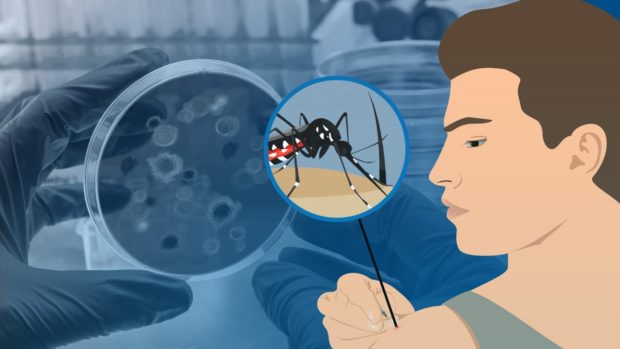DOH: Watch out for dengue, cholera as El Niño strikes

(Image by Daniella Marie Agacer / INQUIRER.net)
MANILA, Philippines — The Department of Health (DOH) on Monday warned the public of possible outbreaks involving dengue and waterborne diseases as the effects of El Niño phenomenon loom.
Health Secretary Teodoro Herbosa and DOH spokesperson Enrique Tayag explained that despite the dry season brought by El Niño, several factors may contribute to these outbreaks.
Dry spell and dengue outbreak
Tayag even recalled a similar incident in 1998, when a dengue outbreak occurred amid the El Niño season.
“Siguro magtataka kayo kasi kailangan ng tubig [ng lamok, so rine-relate ‘yung dengue sa tag ulan, pero ang El Niño kasi ang tendency ng mga tao ay mag-igib ng tubig, so marami tayong water containers na ‘yun ang magiging breeding places ng mga lamok,” explained Tayag.
(Maybe you will be surprised because mosquitoes need water, so dengue is related to the rainy season, but during El Niño there is a tendency to collect water, so we have many water containers that will be breeding places for mosquitoes.)
Article continues after this advertisementRusty, damages pipes and cholera
Herbosa said that water pipes during water disruptions may unintentionally lead contaminated water to homes, which could result in diseases like cholera or diarrhea.
Article continues after this advertisement“‘Yung waterborne ‘pag pinapatay ‘yung water ‘yung mga pipes natin na luma na at butas pinapasok ‘yan … ang problema doon, is kung malapit siya sa palikuran, doon papasok ang cholera, you’ll find out that this is the time we remind people to boil water, especially if the water is turbid or has a different color,” said Herbosa.
(In waterborne diseases, during water interruptions, contaminants may permeate old pipes. The problem is, if it is near a drainage or sewage pipes, the cholera bacteria may enter.)
Herbosa assured the public that he will order the DOH’s disaster program to address these diseases in advance to prevent outbreaks.
“Hindi ito kagaya ng bagyo, it’s insidious, mas mabagal, so the effects huli na ‘pag nalaman mo, so it’s better to be prepared against this hazard of the El Niño,” said Herbosa.
(This is not like a typhoon, it’s insidious, slower, so you’ll feel the effects later on, so it’s better to be prepared against this hazard of the El Niño.)
El Niño’s scourge
El Niño season refers to the warming of the ocean surface in the central and eastern tropical Pacific, typically causing increased heat globally which results not just in drought but heavy rains in some parts of the world.
The state weather bureau previously projected that the effects of the El Niño phenomenon in the country would persist until 2024.